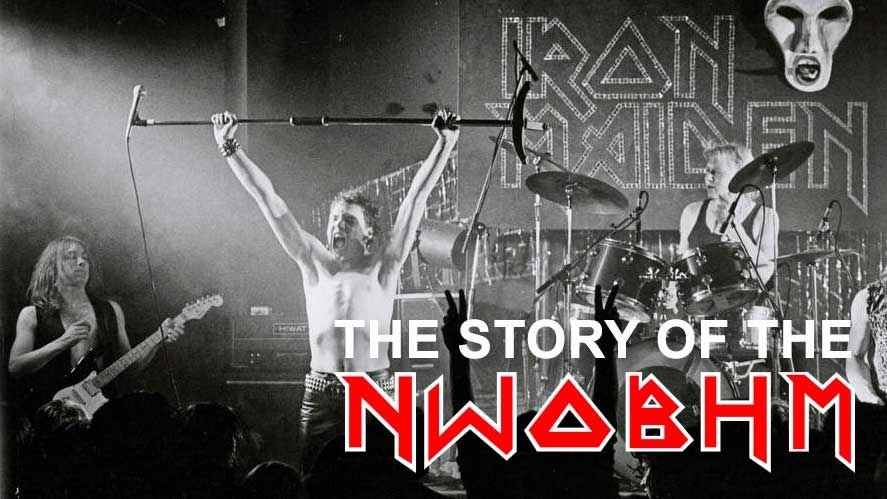Not up to a decade after it have been solid within the white warmth of the past due 60s, British rock used to be in bother. Its unique pioneers had both cut up up, misplaced contact with fact or had been spiralling into drug-addled irrelevance, their thunder stolen by way of each a wave of platinum-plated American bands and the incendiary punk motion.
It’ll were down, however British rock wasn’t relatively out. Because the Seventies hurtled in opposition to its conclusion, a brand new wave of heavy bands from all corners of the UK sparked off a grass-roots revolution, rewriting the guideline e-book on how issues might be finished and giving their extra established opposite numbers a shot within the arm. Its main lighting fixtures would pass on to succeed in the unthinkable, however even the bands who didn’t and were given left at the back of – the foot squaddies, also-rans and no-hopers – had been heroes in their very own approach.
For a couple of superb years within the past due 70s and early 80s, those small islands had been the epicentre of essentially the most colourful, thrilling and groundbreaking scene round. That is the tale of the way British rock heavied up and adjusted the arena as soon as once more…

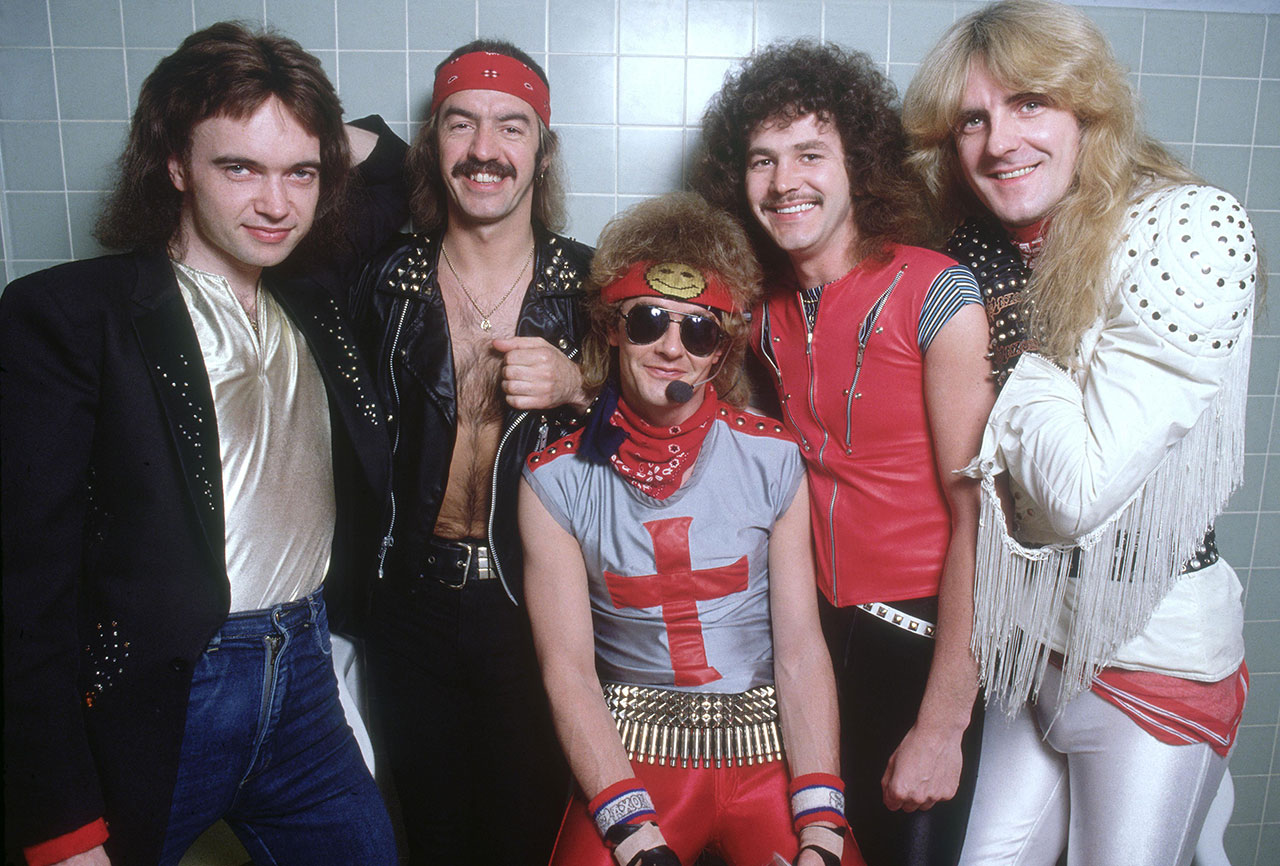
The Sixties marked the daybreak of the rock generation. Pop’s easy points of interest had given solution to one thing more difficult, heavier and extra grown up, and the branches of the musical tree started to unfold wildly: blues rock, psychedelia, West Coast rock, East Coast rock, nation rock, heavy steel. A era of impressionable would-be musicians had been paying avid consideration.
Speedy Eddie Clarke (ex-Motörhead): Enjoying song used to be all the time the object for me. I began when I used to be twelve or 13, began to peer Eric Clapton and simply sought after to do it. Then Hendrix comes alongside and blew me fucking head off.
Biff Byford (Saxon): I grew up within the Sixties. I listened to all of the pop teams – the Rolling Stones, The Beatles, The Kinks. My mum used to be a pianist, and my good friend used to be in a blues band. We’d watch him play and I determined to be informed the guitar somewhat bit. That’s after I sought after to get fascinated about song.
Joe Elliott (Def Leppard): The primary artist that I were given into used to be Marc Bolan from T.Rex. The whole lot he did, the entire catalogue. I sought after to be Marc Bolan. David Bowie when he did Starman on Most sensible Of The Pops – that blew me and everyone away.
Steve Harris (Iron Maiden): I used to hear The Beatles and The Who and stuff like that. Then I began entering extra rock stuff, and that resulted in Wishbone Ash after which directly to prog. The ones early Genesis albums gave me goosebumps.
For plenty of of those aspirant musicians, song presented an break out from the drudgery of actual existence, if no longer an immediate path to reputation and riches.
Rob Halford (Judas Priest): All of us got here from difficult working-class backgrounds. Walsall and West Bromwich had been lovely bleak. Lets all relate to the will and the need of looking to get away of a nasty cycle.
Speedy Eddie Clarke: I come from a working-class background. I by no means idea I’d earn a living out of song. My dream used to be to play my guitar and earn sufficient to devour and reside. If I may just do this I’d feel free for the remainder of my existence.
Biff Byford: In Barnsley, your major task selection used to be happening the pit. Mining used to be a excellent dwelling, it wasn’t terrible. However I sought after to peer the arena a bit of, meet some women.
Joe Elliott: The ambition used to be simply to be in a rock band. It’s like: “I don’t need to paintings in a manufacturing unit all my existence.”
Rob Halford: We by no means actually sat down as a band and stated: “What’s the combat plan?” Like all good thing that comes out of Britain, it had some apprenticeship, some willpower at the back of it.
Speedy Eddie Clarke: Not one of the musicians again then sought after stardom or large fucking wads of cash, they only sought after to play their song and make a crust. Once I joined Motörhead it used to be simply one thing to do. We didn’t need to transform stars, it used to be simply a possibility to play.
Brian Tatler (Diamond Head): Once I began Diamond Head in 1976, the dream used to be simply to make data and revel in it. I had no concept how you were given from forming a band with your folks to taking part in one thing massive like Wembley Stadium. It gave the impression not possible.
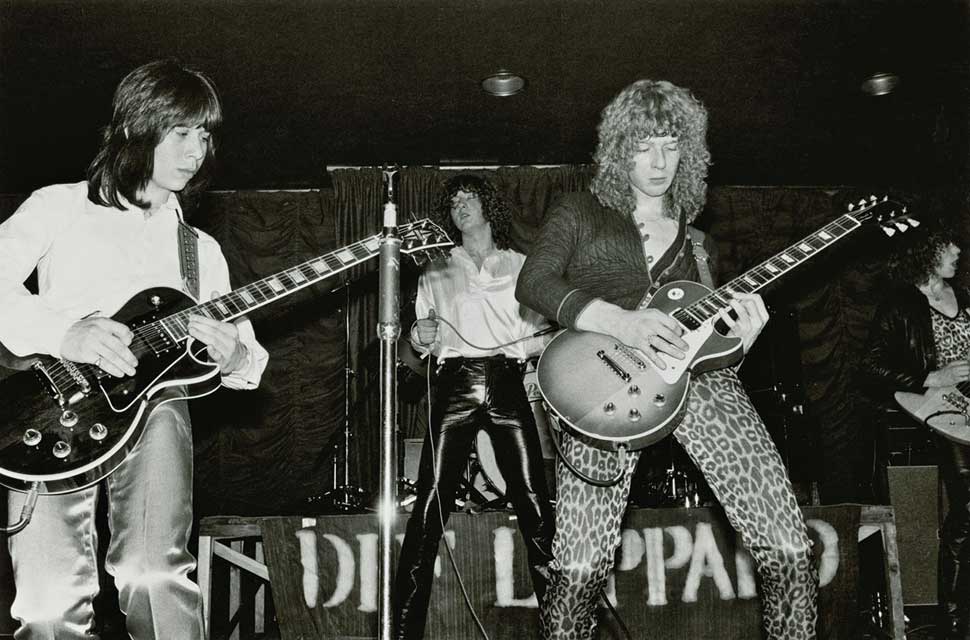
By means of the mid-70s, issues had began to modify. For some bands, the trap of The us proved impossible to resist and so they spent their time traveling there, hoovering up cash and no matter else used to be to be had. For others, years of luck had bred complacency, vanity or each.
Speedy Eddie Clarke: I went to peer Led Zeppelin at Earls Courtroom in 1975. Fuck me, there used to be a 40‑5 minute drum solo, and Jimmy Web page used to be fucking about together with his guitar for an hour. You’d sit down there and suppose: “I didn’t fucking come right here to peer this.”
Ashley Goodall (EMI A&R guy):
I don’t suppose there have been that many nice rock bands round. A large number of the massive guys had run out of steam by way of ’76 or ’77: Deep Crimson, Led Zeppelin somewhat bit. Queen had been type of wearing on, being relatively pop, however that they had long gone out of favour a bit of.
Speedy Eddie Clarke: The prog rock lot had long gone a bit of over the fucking best. The Sure’s and Genesis’s had overpassed the entirety. All of them had servants and Rolls-Royces. I simply idea: “Fuck off you foolish c**ts.”
Brian Tatler: I beloved Purple Floyd to demise, however I couldn’t get tickets to peer them, and in case you did get tickets then you definitely’d be amongst 10000 other folks in a really perfect large corridor. No less than within the pubs or golf equipment there used to be some pleasure, some sweat.
Andy Dawson (Savage): Issues had been getting a bit of tame, after which punk got here alongside and kicked everyone up the arse.
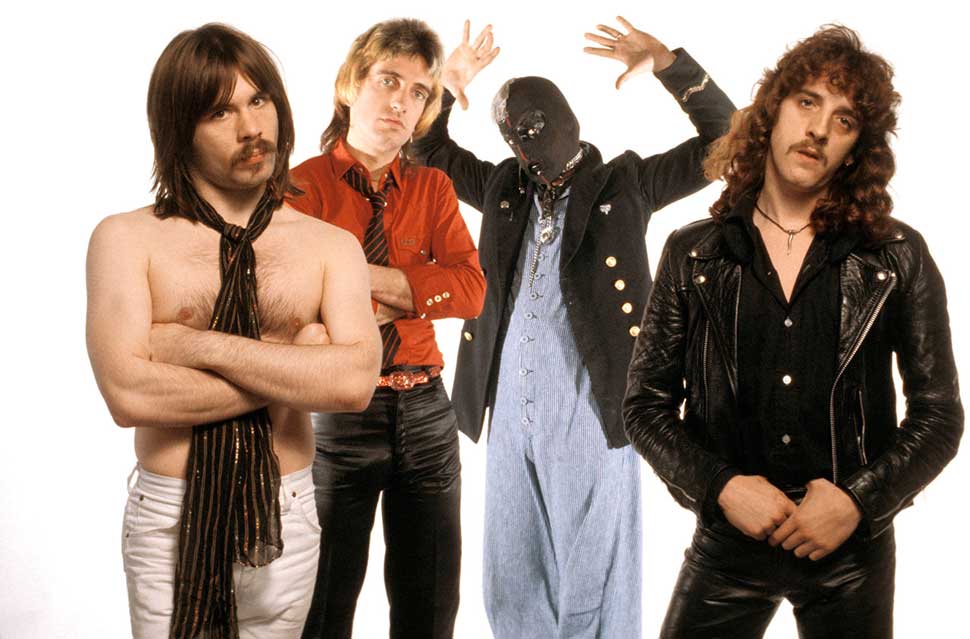
British punk used to be born within the underground golf equipment of London however all of a sudden unfold outwards, lights up the towns of Britain like a chain of detonations. Its plastered-on snarl and nihilistic global view used to be the antithesis of the entirety that had long gone prior to. Find it irresistible or hate it, punk needed to occur.
Brian Tatler: I hated the Bay Town Rollers and The Osmonds and all that stuff, so when the Intercourse Pistols gave the impression on TV I assumed it used to be nice. I may just play like Steve Jones, while I couldn’t play like Ritchie Blackmore. I used to be like, “Let’s no longer hang out – those guys are doing it.”
Jess Cox (Tygers Of Pan Tang): Lots of the punk bands had been terrible, however some had been excellent. We had been neatly into The Conflict, the Pistols, stuff like The Tubes. However all of us beloved Led Zeppelin and Black Sabbath as neatly.
Biff Byford: We didn’t actually get on with the craze – the bloody protection pins throughout the noses. We did take at the studs, although. There have been numerous studded jackets round on the time. We nicked that and grew to become it into our personal taste, as did Motörhead.
Speedy Eddie Clarke: Motörhead had been permitted by way of all of the punks. We had lengthy hair, however we wore leather-based jackets and we performed loud and speedy. We had been in the similar circle of relatives.
Rob Halford: The click simply stated: “Fuck off, heavy steel, it’s over.” We stated: “No it’s no longer.” We noticed that punk used to be gonna be a short-lived revel in. I discovered it very insulting that any individual would disregard no longer best the bands but additionally the fanatics. In order that made us even more potent.
Thunderstick (Samson): Punk got here alongside and swept the entirety away. The primary time I noticed it, I assumed: “Those guys can’t play their tools.” However then I briefly realised that it wasn’t all to do with simply taking part in the fabric. It used to be about an approach to life.
Speedy Eddie Clarke: Punk used to be refreshing. Particularly after they stated: “Fuck off everyone.” I’d been pronouncing that for years.
Brian Tatler: Punk introduced issues backpedal to the grass roots, didn’t it? That you must pass and notice a band within the pub. The New Wave Of British Heavy Steel followed the selfmade perspective.
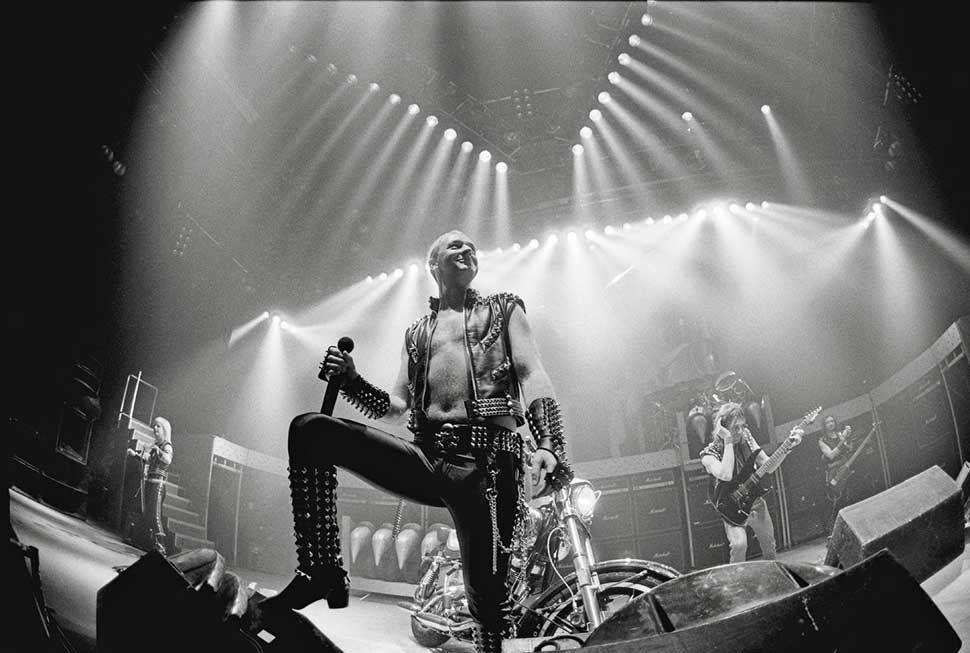
Punk can have pitched itself because the sworn enemy of the ‘dinosaur’ bands, but it surely had the unexpected aspect impact of galvanising probably the most extra clued-in longhairs. Motörhead, shaped in London in 1976 by way of former Hawkwind bassist Lemmy, had been one such staff. Barnsley’s Son Of A Complain – quickly to modify their identify to Saxon – had been any other.
Speedy Eddie Clarke: The audiences at our early gigs had been disillusioned rockers. They’d lengthy hair and leather-based jackets however they didn’t just like the punk factor. They had been into Deep Crimson and Black Sabbath again within the day, however they’d fucked off to The us.
Biff Byford: Motörhead had been flying the flag. They had been large approach prior to us. They had been those busting down the doorways.
Speedy Eddie Clarke: It used to be an overly British type of song. The fucking American citizens weren’t arising with the rest, anyway.
Andy Dawson: Saxon had been going robust neatly prior to the New Wave Of British Heavy Steel kicked in.
Biff Byford: We had been taking part in relatively a couple of displays with numerous kids within the crowd. It used to be relatively an competitive degree display. There used to be so much operating round and shouting. I feel we took that from the punk bands.
Speedy Eddie Clarke: I assumed Saxon had been fucking blinding. They had been a really perfect band, that they had nice tunes, and what a really perfect bunch of men. Once they supported us at the Bomber excursion I used to move out and sneak into the gang to look at one among their tunes, See The Mild Shining, each and every evening.
Biff Byford: We had been all the time chasing a report deal. We’d ship cassette tapes off to other folks. In the event that they didn’t like one lot of songs, we’d throw them within the bin and write some extra songs.

Round the similar time, a gang of streetwise East Londoners had been making a reputation for themselves within the pubs and golf equipment of the capital, maximum significantly the Ruskin Palms in Manor Park. Their identify used to be Iron Maiden, and so they had been led with gritty ambition by way of bassist Steve Harris.
Rob Verschoyle (early life good friend of Steve Harris): I met Steve when I used to be twelve and he used to be ten. The variation between the remainder of us and Steve used to be willpower. He’d be taking part in bass at all times. He changed into a trainee draughtsman, however he gave that up to be aware of taking part in. His entire existence used to be like that. The rest he did, he went at it 100 in line with cent.
Steve Harris: I wouldn’t say I’m a keep an eye on freak. I identical to to get issues finished.
Neal Kay (DJ/founder, Heavy Steel Soundhouse): Since 1975 I’d been build up a small venue in Kingsbury as a heavy steel discotheque. It used to be referred to as The Bandwagon within the Prince Of Wales pub, however I rechristened it the Heavy Steel Soundhouse. The primary room held about seven-hundred other folks, and we had a fuckin’ ginormous sound device. I saved badgering Geoff Barton at Sounds to return down, as a result of I knew it used to be distinctive, and a really perfect press tale. It took a very long time to persuade him however in spite of everything he got here.
Geoff Barton (writing in Sounds, August 1978): “The decor resembles Dodge Town, American B-movie Western taste however, with alternating flashing lighting fixtures/darkness, your eyes by no means actually regulate to note that a lot element. The Bandwagon and the song that’s performed there’s very a lot a gift day fact, it doesn’t matter what the craze pundits would possibly inform you. And to me, and a goodly collection of different punters, it’s like somewhat little bit of heaven on earth.”
Neal Kay: After Geoff Barton’s double-page unfold in Sounds, unexpectedly these kinds of demo tapes began getting back from oppressed bands who couldn’t get out. Amongst those tapes used to be the Iron Maiden demo.
Steve Harris: We did a four-track demo and gave it to Neal Kay.
Neal Kay: Steve and [Maiden singer] Paul Di’Anno introduced it to me on some of the week nights. Steve stated: “’Ere, mate, give this a concentrate whilst you’ve were given a minute.” I stated: “You’ll be fortunate. I’ve were given tens of millions of tapes to hear.” However that evening I put it within the participant and listened to it. I assumed: “Fuck me, that is going all of the approach.” I phoned Steve up at two am and stated: “You’re going to be actually wealthy, as a result of what you’ve were given right here is little short of sensible.”
Steve Harris: He performed it on the membership and other folks started balloting for it as their favorite music. We began entering those Sounds charts, which have been compiled from requests there. That’s what were given the ball rolling for Maiden.
Biff Byford: We performed some universities with Iron Maiden, supporting a band known as Nutz. The individuals who booked it stated they’d by no means observed bands pass down so neatly that sounded so crap. We relatively preferred that.
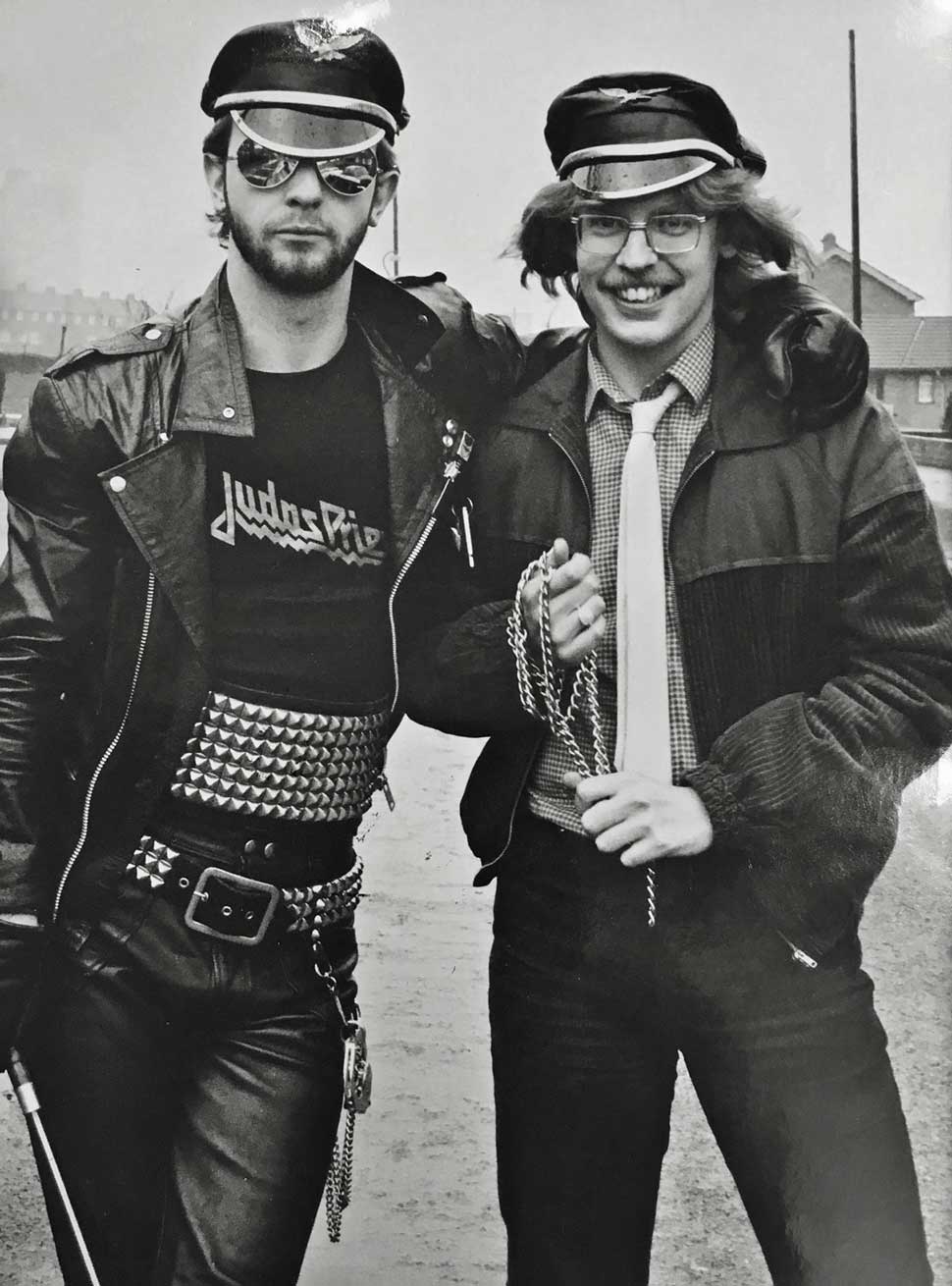
100 and fifty miles up the M1 in Sheffield, any other similarly formidable staff of kids had their eyes firmly set on rock stardom. Singer Joe Elliott, bassist Rick Savage and drummer Tony Kenning had shaped the band Atomic Mass whilst nonetheless of their mid-teens. By the point they performed their first gig, in a college canteen, that they had modified the band’s identify to Def Leppard.
Biff Byford: Def Leppard had been very younger. They had been 4 or 5 years more youthful than we had been.
Joe Elliott: We had been a number of youngsters destined for manufacturing unit existence. We knew the alternatives we had been being given. We weren’t going to screw this up.
Rick Savage: We had been youngsters, and we had this trust that the rest used to be conceivable. When that frame of mind is moulded into the crowd at that very early degree, it by no means actually leaves you.
In January 1979, Def Leppard launched their self-titled debut EP. With copies glued in combination by way of Joe Elliott and his mum, it used to be to be had by the use of mail order and at gigs, costing the princely sum of £1.
Biff Byford: Def Leppard did the EP and bought it in Sounds. I really like that early stuff. It used to be killer.
Joe Elliott: We had been only a bunch of youngsters messing round, doing what we felt used to be proper. However Getcha Rocks Off did have a vibe about it that used to be above and past what everybody else looked to be doing. I feel there used to be a excellent reason why we were given the deal that masses of alternative bands couldn’t appear to get on the time.
Andy Dawson: Everyone I knew went out and taken that EP. There used to be a rock disco on Friday, and that might be performed each and every time.
Joe Elliott: That naiveté can actually power you. And we weren’t silly. We realized our craft from taking note of other folks. We had been scholars of Pete Townshend and Ray Davies and Plant and Web page and Lennon and McCartney. We knew a excellent music once we heard one – and we simply attempted to tear off as lots of ’em as lets.
Geoff Barton: After a lot phone-call badgering, Joe Elliott enticed me as much as Sheffield in June 1979.
Joe Elliott: The primary time Geoff Barton got here to peer us play used to be at Crookes Operating Males’s Membership in Sheffield. I picked him up on the teach station in my van – a two-seater so it’s good to throw shit within the again.
Geoff Barton: I used to be stunned. They placed on a vastly spectacular efficiency for the cap-wearing, ferret-bothering target audience. A next double-page characteristic in Sounds, plus robust beef up from native station Radio Hallam, helped safe them a freelance with Phonogram.
Speedy Eddie Clarke: Def Leppard I by no means actually were given in conjunction with. I do know them now, however they weren’t actually my cup of tea again then. They had been like a girly band, looking to attraction to women.
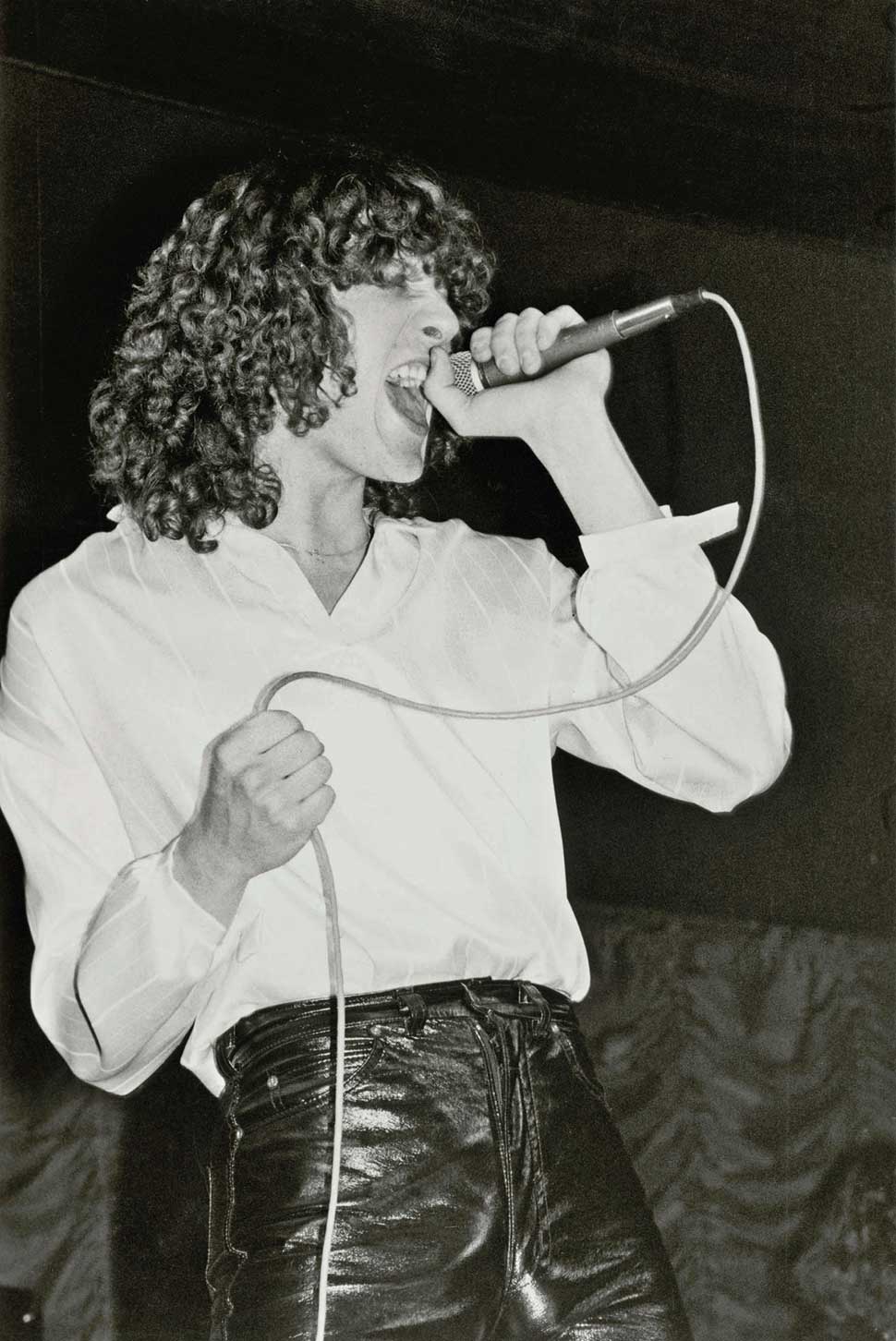
The media used to be so enamoured with punk that it failed to note this new motion bobbing up beneath its nostril. All over the nation, new bands had been showing at a weekly price. Within the north-east there have been the Tygers Of Pan Tang, Raven and Fist. Scotland had Holocaust. The East Midlands had Witchfynde and Savage, whilst the West Midlands used to be represented by way of Diamond Head, the West Nation had Jaguar. London had Samson, Angel Witch, Girlschool and, after all, Iron Maiden. And that used to be simply the top of the iceberg.
Ashley Goodall: The punk factor used to be beginning to get dull, to be truthful. I realized there have been numerous youngsters going to heavy rock occasions. There used to be a larger target audience at The Bandwagon than there used to be at golf equipment like The Marquee.
Andy Dawson: Bands like Skinny Lizzy, UFO and the Scorpions gave the impression up to now away. They gave the impression different‑wordly. However then you definitely’d see a few of these bands taking part in your native venue, and also you began to suppose: “Possibly we will do it as neatly.”
Jess Cox: What made us need to be in a band? I suppose the solution is that it used to be simple to satisfy women.
Biff Byford: There have been lots of gigs, lots of women.
Andy Dawson: A large number of bands had been nonetheless taking part in covers. We used to do a suite that might be part made up of songs from Are living And Bad and part from Strangers In The Evening. Then we began introducing our personal songs.
Thunderstick: Samson used to be the primary band I joined that in fact had a supervisor. We were given a retainer salary, which used to be lovely excellent. We used to rehearse in a farmer’s shed, with these kinds of rotting greens in it. It had one energy level that we’d run the entirety off.
Jess Cox: We had been simply out to make a wonderful racket. We had no concept how the hell you construction a music. In the event you concentrate to a couple of our early tracks, you’ll to find that there’s 4 bars right here and 7 bars there.
Biff Byford: We had been taking part in actually speedy stuff – it used to be all By no means Give up and Stand Up And Be Counted. Simply getting out at the streets, that used to be our message in the ones days.
Jess Cox: We had drainpipe denims and fringes. I do know that sounds hilarious now, but it surely used to be a large deal on the time, as a result of flares had been in and also you needed to have your hair parted within the heart.
Thunderstick: The masks happened as a result of maximum drummers had been faceless. They had been hidden at the back of kits. So I assumed: “I’ll create a faceless drummer.” I couldn’t give it a reputation of Barry Graham Purkis, as a result of then it might be a bit of garbage. In order that’s how Thunderstick happened.
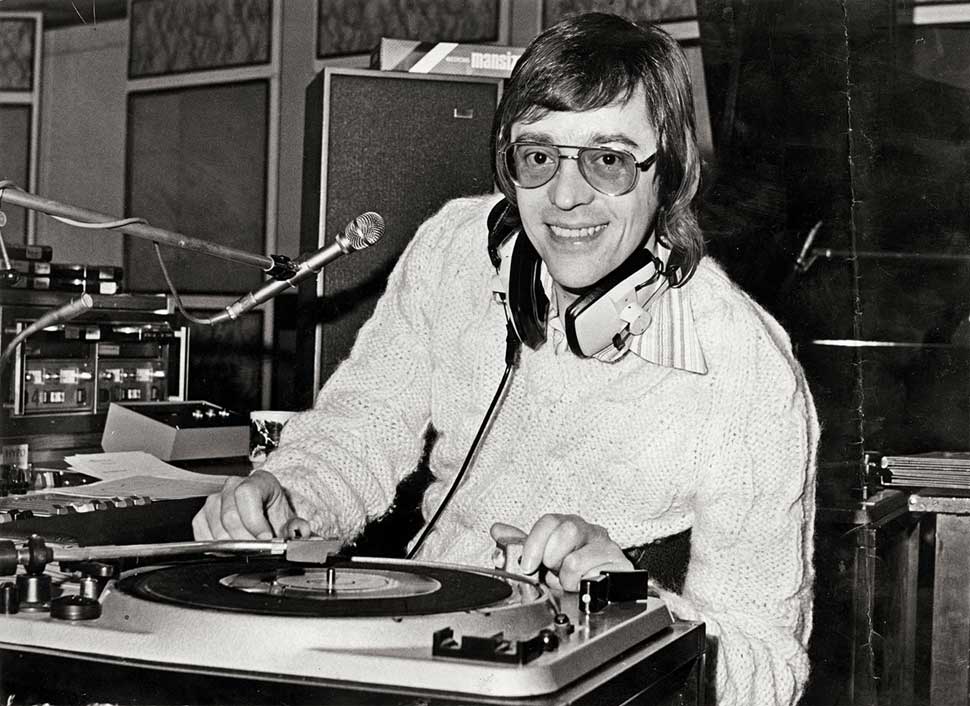
Even the crammed shirts on the BBC couldn’t forget about the musical shifts that had been going down. In November 1978, Radio 1 introduced The Friday Rock Display, offered by way of gravel-voiced DJ Tommy Vance. Airing at 10pm each and every Friday, it used to be very important listening for any self-regarding rock fan who sought after to listen to the lastet state of the art band.
Tony Wilson (Friday Rock Display manufacturer): Alan Freeman have been presenting the Saturday Rock Display on Radio 1 since 1973, however they determined that Fluff used to be too outdated for the task, and he left and went off to Capital Radio. I stated: “Neatly, we wish to to find anyone else to do any other rock display.” I determined that Tommy Vance used to be the most suitable option, in opposition to the simpler judgment of Derek Chinnery, the controller of Radio 1.
Joe Elliott: On the time, there have been native radio stations that had their very own rock display. However this used to be the one one on nationwide radio. So whilst you tuned in to hear Tommy, you knew you had been in for an schooling.
Tommy Vance (talking in 2002): The overriding reminiscence of the Rock Display used to be that I used to be operating for an target audience that favored it, they preferred it and had been thankful for the reality I preferred it and sought after to play it. Nevertheless it wasn’t simply me, as a result of I had a excellent manufacturer, Tony Wilson.
Tony Wilson: I had totally loose rein, as a result of no person within the control knew or cared what we had been doing. They had been simply glad to have any individual who used to be sufficient to do one thing like that, so long as we didn’t purpose any outrage.
Tony Wilson: Other folks say it used to be relatively influential. We did get huge mailbags of submit each and every week, and that used to be a trademark that individuals had been listening. I feel it used to be some of the tactics for other folks to listen to song and interact with the brand new rock motion, and so they did.
Joe Elliott: He might not be considered an innovator in the similar approach as, say, John Peel, however for all rock fanatics in Britain on the time [Tommy Vance’s] display used to be vastly essential. He’s by no means been changed, and he by no means can also be.
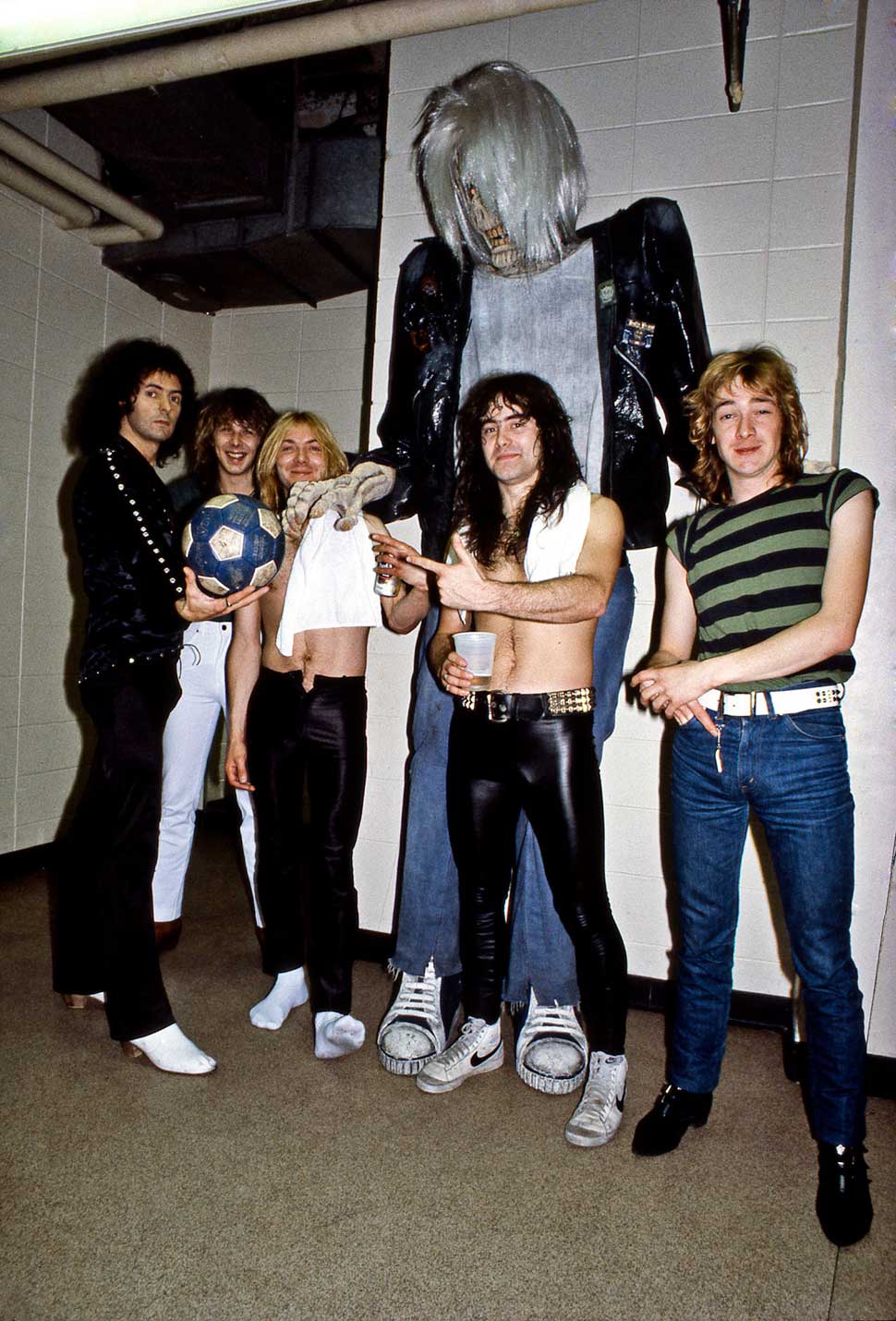
Around the nation, issues had been starting to warmth up. Apart from the discharge of Def Leppard’s debut EP, 1979 noticed the fantastic one-two of Motörhead’s Overkill and Bomber, in addition to the debut album from Saxon.
Speedy Eddie Clarke: We didn’t know we had been making those nice albums on the time, however we beloved ’em to bits. Overkill used to be completely unbelievable. We were given a brand new rent of existence, and it persisted into Bomber. We had been simply fucking cooking like fuck.
Biff Byford: It actually took us by way of marvel, how common we changed into in no time.
Neal Kay: One of the crucial important gig I did at The Track Device used to be after I put Samson, Iron Maiden and Angel Witch on in Might 1979.
Thunderstick: Once we performed The Track Device for the first actual time, I couldn’t imagine the quantity of people who got here throughout the door. One of the vital fanatics have been laying in wait, looking forward to punk to run its path. When they had finished, they got here up and pledged allegiance to the New Wave Of British Heavy Steel.
Geoff Barton (writing in Sounds): “The band, wearing cheesecloth shirts and loon pants, tossed their lengthy hair, pouted, posed and punched their firsts into the air after every agonising guitar solo.”
Alan Lewis (editor, Sounds): I coined NWOBHM (New Wave Of British Heavy Steel) as a front-page headline. Nevertheless it used to be type of an in-joke. We had been all the time hailing one thing or different as ‘The New Wave Of…’
Thunderstick: I were given the entrance quilt of Sounds, with that version the place the word The New Wave Of British Heavy Steel used to be coined.
Biff Byford: We saved getting little opinions in Sounds and Melody Maker. They saved doing little opinions about us. Nevertheless it actually began to occur when Geoff Barton got here to peer us and a did an enormous two-page piece on us in Sounds.
Bruce Dickinson (Samson): NWOBHM used to be a fiction, actually, an invention of Geoff Barton and Sounds. It used to be a crafty ruse to spice up flow. Having stated that, it did constitute numerous bands that had been completely disregarded by way of the mainstream media. On account of that it changed into actual and other folks were given at the back of it.
Brian Tatler: After the Sounds piece, you unexpectedly idea: “K, there’s different bands across the nation doing what we’re doing, they’re the similar age.” We finally end up travelling to Leeds or Newcastle or London. Unexpectedly our horizons had been opened.
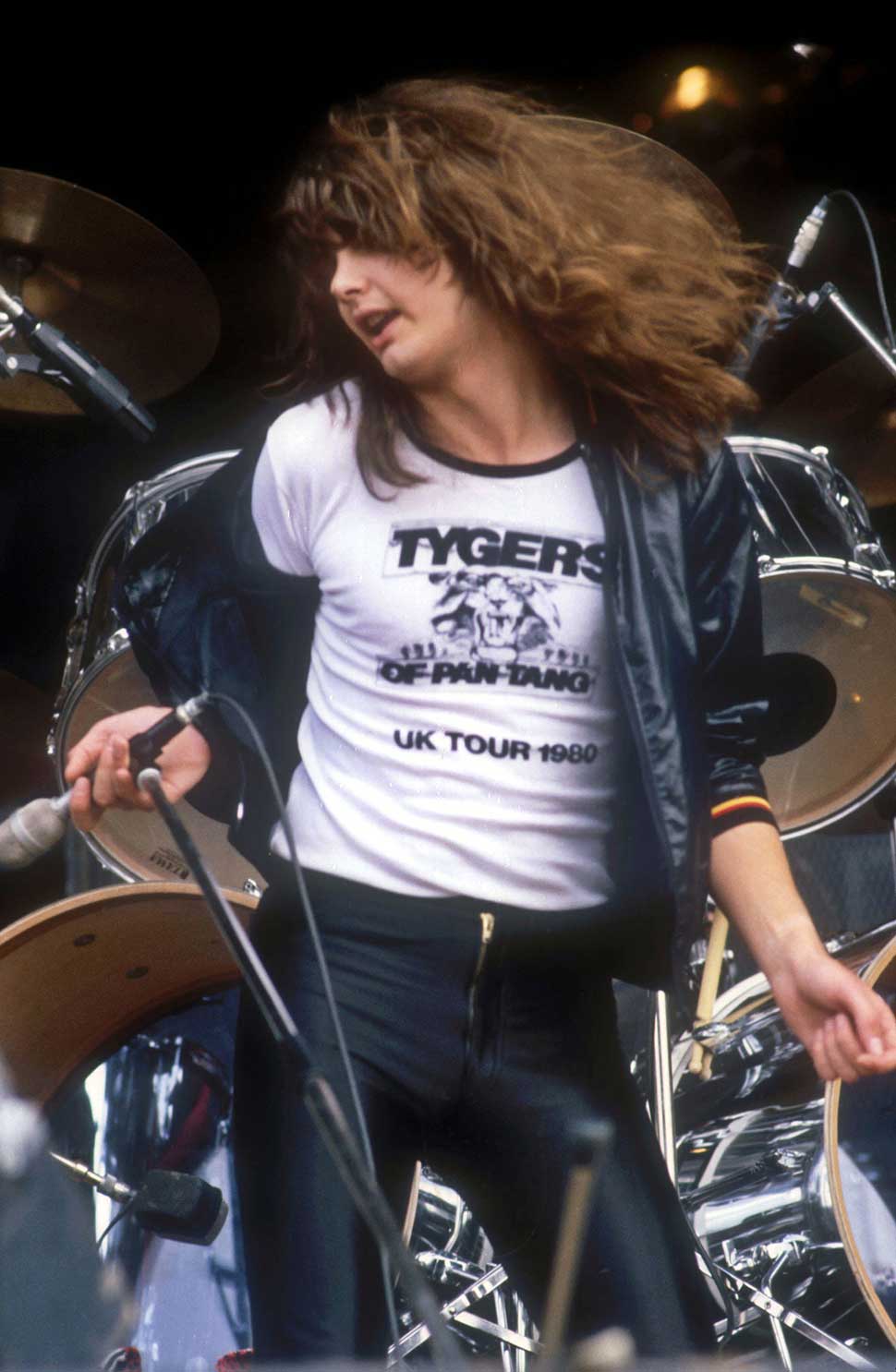
Due to the trade acumen in their new supervisor, Rod Smallwood, Iron Maiden had been jostling with Def Leppard for the placement of the NWOBHM’s best canine.
Ashley Goodall: I feel it’s important to differentiate between Def Leppard and Iron Maiden. Def Leppard had a extra American perspective; Maiden had a punk ethos about them, although the had been undoubtedly a rock band. They’d that street-y, London perspective.
Paul Di’Anno (Iron Maiden, talking in 1980): We nonetheless need to keep as shut as conceivable to the children who were given us up right here within the first position. I don’t need other folks to begin muttering: “Oh glance, there’s so-and-so from Iron Maiden there. Lets communicate to him, or shan’t we?” Bollocks. They must be capable of come over and say: “Hi mate, how is it? I assumed you performed like a c**t the opposite evening.”
Ashley Goodall: I first noticed Maiden on the Swan in Hammersmith. It used to be like a soccer crowd. They’d a hard-core following with the T-shirts. I assumed: “It is a nice gig. There’s one thing right here that’s actually excellent.”
Bruce Dickinson: It used to be blindingly evident that Maiden had been going to be large. This hyper-kinetic band, it used to be actually a drive of nature. Paul Di’Anno, he used to be ok, however I assumed: “I may just actually do one thing with that band!”
Ashley Goodall: Iron Maiden stood out as a result of they’d taken on probably the most punk ethos, which used to be to do your individual factor, put your individual report out, make your individual existence. Possibly they borrowed a few of that from the punk bands.
Steve Harris: We determined to liberate The Soundhouse Tapes (in November 1979) as a result of we’d do actually neatly at gigs, then afterwards there’d be these kinds of fanatics asking the place they may purchase one among our data. Once we informed them there wasn’t any but they couldn’t imagine it. They’d observed the charts in Sounds and assumed we will have to have already got a report deal of a few sort, however we didn’t. And I feel that’s once we actually were given the theory of placing the demo out as a real report.
By means of the top of 1979 and into 1980, the NWOBHM amassed tempo. Each and every week, a brand new unmarried gave the impression from some hitherto unknown band, launched on an impartial label similar to Heavy Steel Data, Bronze or Newcastle’s Neat Data. The scene’s large weapons weren’t resting on their laurels, both – Def Leppard and Iron Maiden each launched their debut albums, On Via The Evening and Iron Maiden, in 1980, whilst Saxon launched two stone-cold classics within the form of Wheels Of Metal and Sturdy Arm Of The Regulation. After which there used to be Steel For Muthas, a compilation-cum-lightning rod of this new wave of bands.
Joe Elliott: We had the time of our lives making On Via The Evening. We had been such younger youngsters – Rick Allen used to be fifteen, I used to be nineteen – and we had been recording our first album at Tittenhurst Park, the place John Lennon lived prior to he bought it to Ringo. And I drew the lengthy straw – I were given Lennon’s outdated bed room. The view used to be superb.
Biff Byford: 1980 used to be a large 12 months for us and for the heavy steel style on the whole. The whole lot used to be excellent. There used to be a large groundswell and numerous younger fanatics had been entering steel.
Joe Elliott: On Via The Evening did lovely neatly for us. We bought out Sheffield Town Corridor, it went Most sensible 20 in the United Kingdom. However we had been a piece in development. In comparison to the primary Boston album, the primary Zeppelin album, the primary Van Halen album, it’s Wycombe Wanderers to their Chelsea.
Ashley Goodall: There used to be a studio in EMI that wasn’t too pricey, so I assumed why don’t we get everyone in there and do a excellent, rough-and-ready compilation of what’s occurring at the present time? Principally, mixture what’s occurring and make a remark. That used to be Steel For Muthas.
Andy Dawson: I bear in mind seeing Iron Maiden at our native theatre at the Steel For Muthas excursion. It used to be the primary time I bear in mind seeing an unknown band, and so they nailed it. They got here on degree having a look and appearing like they had been already a success. I’d by no means observed that degree of self assurance prior to.
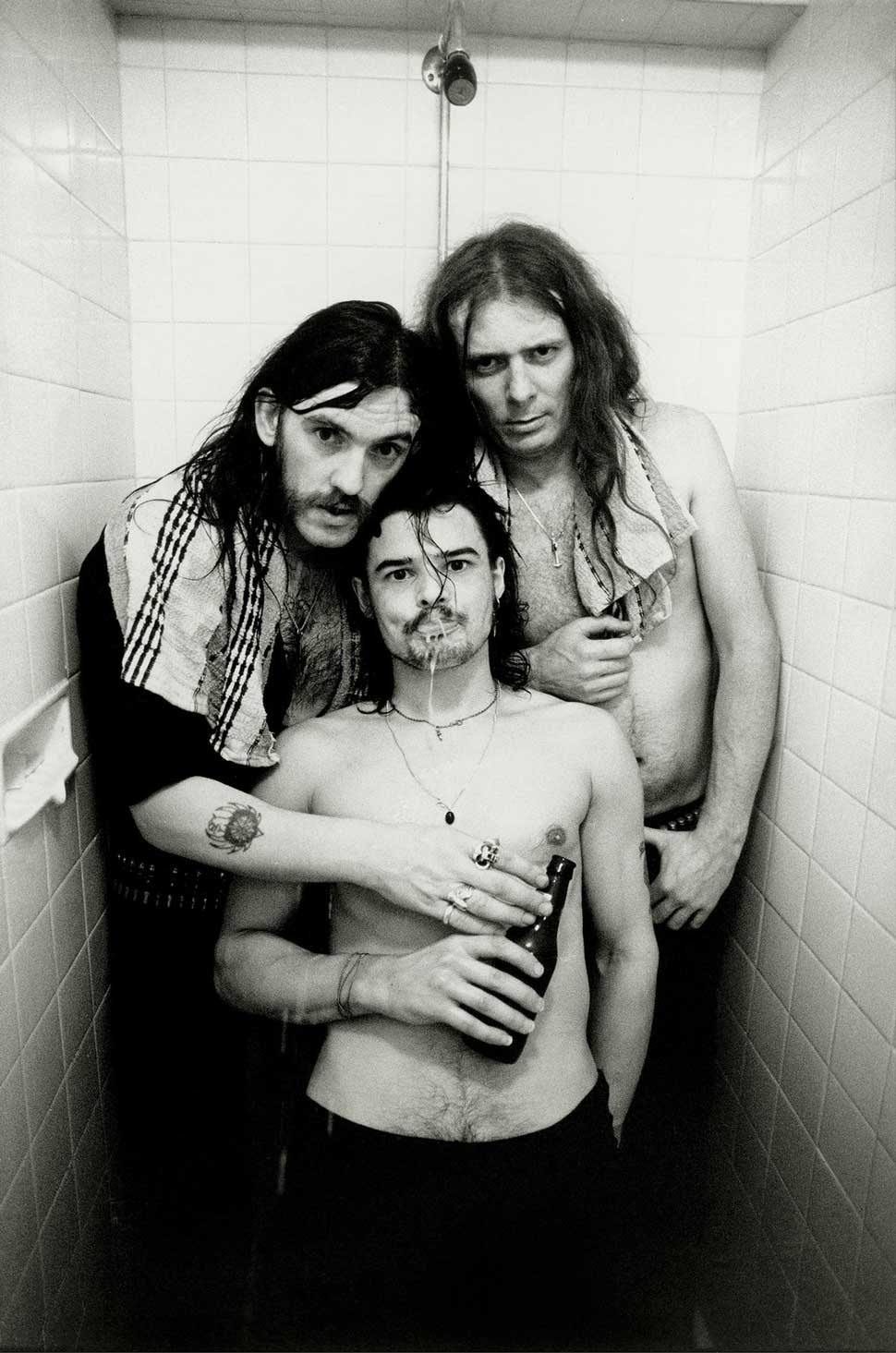
Inevitably, the Most sensible 20 luck of Def Leppard and Iron Maiden spurred the passion of the opposite large labels. All over the nation on the gigs, the denim-clad crowds had been peppered with A&R representatives.
Jess Cox: Everyone sought after their New Wave Of British Heavy Steel band. Hastily those primary labels began appearing. I bear in mind taking part in Sunderland Mecca on a Friday evening, and the pinnacle of labels from Virgin, EMI and CBS had flown up.
Andy Dawson: It wasn’t like the main labels all swept in and began pumping cash. That came about for a couple of bands, however the remainder of us had been simply operating our arses off looking to make this occur.
Jess Cox: The man we had managing us on the time stated: “MCA need to signal you. It way you get your hire paid and 6 kilos every week.” We had been, like: “Whoah, that sounds excellent. Yeah, we’ll do this.”
Andy Dawson: There have been a couple of bands that made the soar to a big, like Saxon and Iron Maiden and Def Leppard clearly. However for almost all it felt like an impartial scene. That used to be the wonderful thing about it – it wasn’t contrived or managed by way of a report corporate govt pronouncing: “That is what you wish to have to do.”
Bruce Dickinson: In Samson we best ever had about thirty quid every week out of the band. However we had been bonkers, totally out of our gourds, and we’d signed the record.
Jess Cox: Within the Tygers we didn’t have two pennies to rub in combination. We’d kip on flooring or anywhere lets to find.
Whilst the song business grew to become its beady eye at the NWOBHM scene, the bands themselves had been treating every different with as a lot suspicion as they had been camaraderie.
Brian Tatler: I feel there used to be a competition. As a result of, after all, we’re all looking to make it, and also you don’t need anyone else to step on you.
Joe Elliott: We didn’t ask to be incorporated within the New Wave Of British Heavy Steel, we had been simply informed we had been in it. We had been glad to take the clicking, however the truth that it saved coming with this NWOBHM typecast, it changed into extra of a “What the hell is that this?” factor.
Jess Cox: It wasn’t this nice large circle of relatives. Bands had been beginning to pass: “Cling on, there are too many different bands, we’re no longer getting consideration.” However we did get relatively pleasant with Maiden.
Brian Tatler: You’d pass and take a look at the contest: Angel Witch, Samson, Maiden, the Leps, Saxon. We’d meet them on occasion, but it surely used to be a bit of insular. We’d pass judgement on the entirety: “Are they excellent? Are we able to be informed from them? Are we able to thieve from them?”
Speedy Eddie Clarke: We didn’t combine with Skinny Lizzy or Judas Priest or that lot. The opposite bands didn’t need to communicate to us. We weren’t regarded on as musicians.
Biff Byford: To inform you the reality, we had been so fucking busy that we didn’t have a lot probability to have a look at what everyone else used to be doing.
Speedy Eddie Clarke: We did understand Iron Maiden. Our paths crossed, however they had been a bit of stand-offish. There used to be nonetheless this factor that Motörhead had been this loud, delinquent juggernaut. And other folks had been scared folks as a result of our Hells Angels contacts.
Joe Elliott: At one gig, I went on degree in a couple of shiny pink trousers, and a white blouse coated in hearts. That used to be me going: “I’m no longer fucking carrying a leather-based jacket and denims like each and every different bastard band on this motion that we don’t suppose we’re whatsoever.”
Jess Cox: We went to London to perform a little displays with Maiden on the Marquee, then swiftly bands began coming to peer us. Judas Priest grew to become up at one gig. Gary Moore were given up on degree and bloody performed with us.
Not like punk, there used to be no generational divide right here. The brand new breed of steel bands seen the bands that got here prior to with reverence, whilst the unique masters had been curious to peer what they’d impressed.
Andy Dawson: You sought after to emulate those bands, no longer kill them off. Bands like Rainbow had been nonetheless large. Everyone nonetheless beloved then. While you went to a rock disco, you’d nonetheless pay attention stuff like that.
Ashley Goodall: Ozzy Osbourne grew to become as much as see Maiden at some of the early gigs on the Track Device, so there used to be numerous passion within the new era of bands.
Rob Halford: We went out with Iron Maiden, Def Leppard. It’s what you must do, regardless of who you’re or what song you play. We’re all at the similar adventure. We’ve all been via slightly affording gasoline and snoozing within the van. That’s a part of your apprenticeship.
KK Downing: I’d by no means heard of Iron Maiden till any individual informed me that they had been going to beef up us at the British Metal excursion. Then they began to get mouthy within the press, pronouncing they had been going to blow the bollocks off Judas Priest and all this kind of stuff. I stated: “I recognize the perspective, like, however let’s fuck ’em off and get anyone who appreciates us!” However they did it and it used to be superb. I’m satisfied that they emerged and changed into a drive to be reckoned with, and received their very own identification, musically, visually and in each and every approach conceivable.
Judas Priest themselves had been the bridge between the outdated guard and the brand new wave. Their debut album, Rocka Rolla, had pop out in 1974, when lots of the NWOBHM musicians had been nonetheless in class, and so they’d survived the punk wars in large part unscathed. Their 6th album, British Metal, used to be launched in April 1980, because the motion started to develop.
Rob Halford: The name of the album used to be a remark in itself. Sheffield metallic used to be the muse for British Metal. And we must all be proud that British musicians are accountable for this drive in song known as heavy steel.
KK Downing: We’d made a couple of albums by way of then. We weren’t precisely floundering round, however the entirety did lock in with British Metal: the art work, the songs, the degree garments. The whole lot consolidated who we had been and the place we had been going. It used to be nearly like a insurrection’s almanac.
Rob Halford: There used to be numerous crap happening in the United Kingdom. Margaret Thatcher have been in energy for relatively quite a few years. The recession used to be occurring, other folks had no jobs and no cash. The whole lot the federal government had stated they had been going to take a look at to do used to be only a crock of shit, and other folks had been pushing again. All of that’s in there, you realize: ‘Utterly wasted, out of labor and down’ – no person cares, I’m going to damage the legislation. We weren’t giving other folks confirmation to damage the legislation, however lets perceive their frustration.
Andy Dawson: I feel numerous power within the NWOBHM used to be frustration. It used to be the beginning of the Thatcher generation, which used to be relatively harmful.
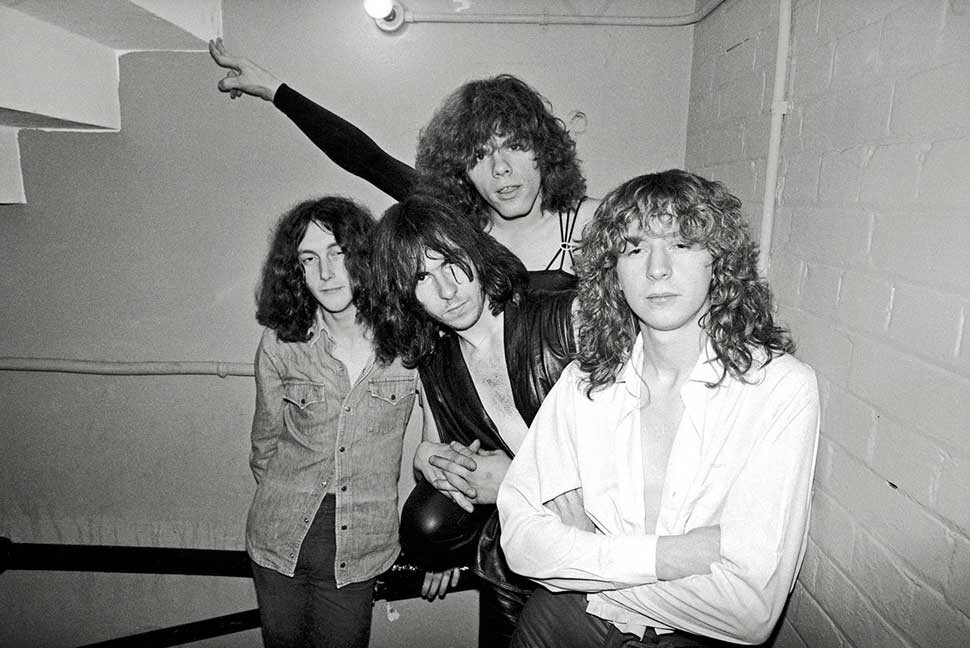
If there used to be one match that acted as a lightning rod for British rock – no longer simply NWOBHM, however it all – then it used to be the inaugural Monsters Of Rock pageant held on the Donington Park racetrack in Fort Donington, Leicestershire on August 16, 1980. The braindchild of younger promoter Paul Loasby and his trade spouse Maurice Jones, the primary line‑up featured Rainbow as headliners, supported by way of Judas Priest, Scorpions, April Wine, Saxon, Rebellion and Contact. There have been different outside occasions prior to, however this used to be the one one devoted only to heavy song.
Rob Halford: We had been very conscious that it used to be the primary pageant of its kind in the United Kingdom and used to be a big match in that admire. The entire gala’s that had came about in the United Kingdom prior to had had a cross-section of bands, so this used to be the primary to move with in particular one form of song. Our response once we first heard about it used to be that we’d like to provide it a crack.
Biff Byford: Once they requested us to play Monsters Of Rock we had no fucking concept what it used to be.
Paul Loasby (Monsters Of Rock promoter): The quantity of rain used to be implausible. I’d borrowed cash in my opinion to position in this display. And the evening prior to, at 4 within the morning when a monsoon is coming down in Fort Donington, I’m sitting there with a bottle of Scotch in my hand considering: “That is without equal, the largest crisis within the historical past of rock’n’roll and I’m going to lose the entirety.” Now not that I had the rest, however I used to be going to lose it anyway.
Neal Kay: I compered the gig. I used to be anxious – I’ve by no means confronted a crowd that massive prior to. But if I walked out on that massive degree, the primary ten rows had been all Soundhouse participants.
Biff Byford: Once we walked on that degree we’d finished 100 thousand data. I might believe that ninety-nine in line with cent of the folks in that target audience had were given Wheels Of Metal. So it used to be unbelievable for us. It used to be our first pageant gig, the primary time we’d performed to an target audience of over 3 thousand. The roar once we went out on degree used to be improbable. Once I walked off I assumed: “Apply that.” That used to be a fucking nice gig.
Neal Kay: The ambience used to be unbelievable. There have been campfires about twilight time.
Biff Byford: This used to be the brand new era of heavy steel. This used to be our song – fucking have it!
After such a lot of years within the doldrums, British rock now gave the impression unstoppable. After which in 1981 the unthinkable came about when the ones perpetual outcasts Motörhead controlled to reached No.1 in the United Kingdom chart with their steel-plated reside album, No Sleep ’Til Hammersmith.
Speedy Eddie Clarke: I guess having a primary report were given us a bit of of admire. I will’t bear in mind who we went to peer, however David Coverdale used to be there and he stated: “Let me purchase you a drink, guys.” And I’m considering: “Fuck me, that’s extraordinary.”
Jess Cox: It used to be best years later that I realised what number of of those bands there have been.
Biff Byford: You’ve were given Judas Priest, you’ve were given Motörhead, you’ve were given Saxon, you’ve were given Maiden… it used to be never-ending.
Ashley Goodall: It changed into transparent in no time who the leaders had been. Leppard had been moderately forward in some way, but it surely did more or less blow out a bit of by way of eighty-one. As soon as Maiden had been away it used to be a fully other recreation.
Jess Cox: Iron Maiden and Def Leppard had other folks at the back of them within the know. They knew the way it used to be all going to pan out.
Ashley Goodall: I’m a believer that in case you’re going to be massive, you’re going to be massive. No person else used to be in fact that excellent.
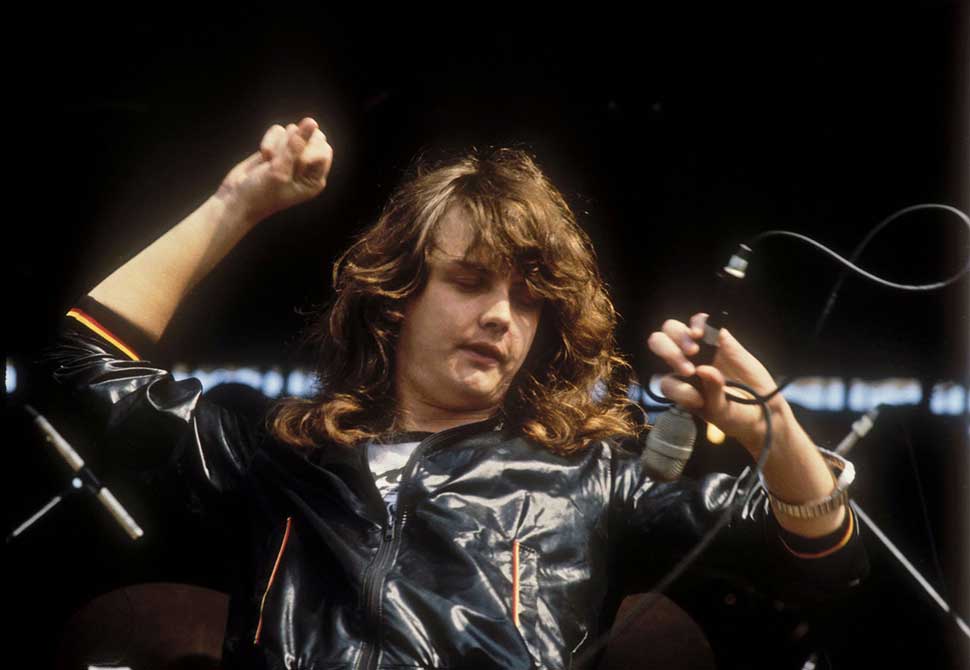
For the NWOBHM’s main lighting fixtures, the following logical step could be to set their attractions on The us. Def Leppard had reputedly made their intentions transparent with the music Hi The us on On Via The Evening– one thing that induced a backlash in Sounds, and noticed them bottled on the 1980 Studying Pageant for his or her troubles. The outdated cliché about Britain hating luck tales perceived to ring true, even though the reality remained that The us used to be there for the taking – a minimum of for a make a choice few.
Biff Byford: Def Leppard went off and did a distinct factor. They went down the American direction.
Rick Savage (Def Leppard): Hi The us? I swear to God, we actually weren’t that clever. It used to be the lyrics of a child fantasising. I will see how other folks learn into it, but it surely used to be far more blameless than that, far more naive.
Joe Elliott: The legend about us getting bottled off at Studying 1980 is a delusion, actually. We most certainly had six or seven bottles of piss thrown up, and perhaps a tomato, but it surely didn’t put us off. That ‘backlash’ used to be all blown out of share. We’re case in point that dangerous opinions make no distinction.
Speedy Eddie Clarke: We didn’t suppose: “We need to damage The us.” We didn’t have any delusions of grandeur. No fucker over there would contact us anyway.
Joe Elliott: Iron Maiden have been to The us a month prior to us. I didn’t see them getting any flak. Nor must they have got. So why the hell did we?
Steve Harris: We had been by no means obsessive about breaking The us. We all the time deliberate to return out right here and provides the entirety we’d were given, and so they’d both find it irresistible or they wouldn’t. Thankfully for us they preferred it. In reality they bloody beloved it. Nevertheless it used to be all the time a problem. We didn’t do issues the standard approach.
Glenn Tipton (Judas Priest): If we hadn’t long gone to The us we’d most certainly best have lasted for any other 3 or 4 years.
Rob Halford: We had been undoubtedly acutely aware of what used to be occurring with MTV [which launched in August 1981]. It used to be a recreation changer.
Joe Elliott: The fledging MTV, having not anything to play, preferred the theory of this younger UK rock band, so that they picked up on Bringin’ On The Heartbreak [from Leppard’s second album, 1981’s High ’n’ Dry]. So six months, perhaps a 12 months after Prime ’n’ Dry got here out, we began getting those telexes pronouncing: “Your album is promoting six thousand copies every week. Then it used to be ten, fifteen, twenty thousand copies every week. It used to be heading towards platinum by the point we had Pyromania within the bag.
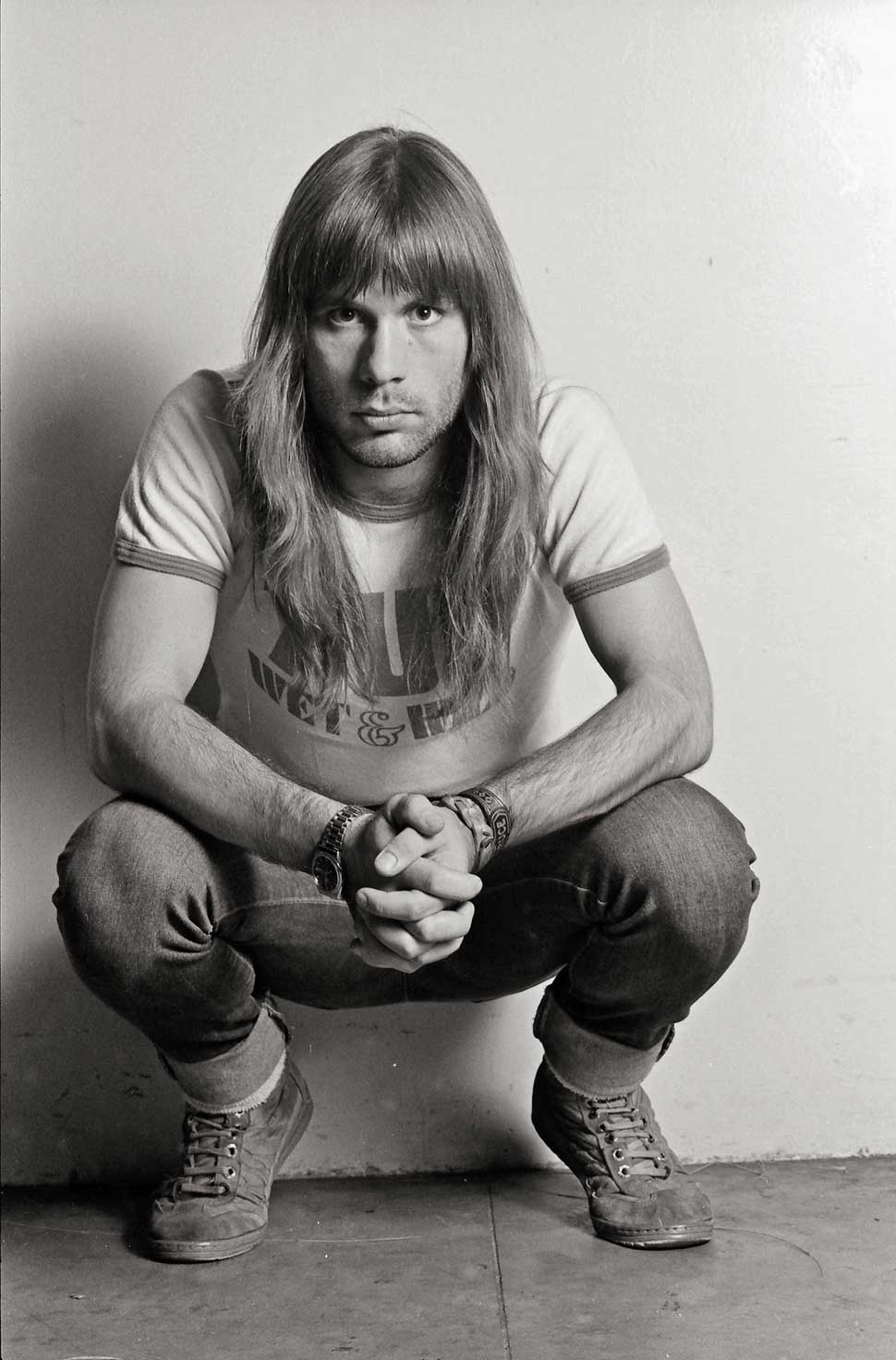
All the way through 1982 and into 1983, the flow of bands freeing singles and albums didn’t hamper. To the informal observer, the British rock and steel scene regarded in impolite well being. However in fact it used to be beginning to run on fumes. Due to Def Leppard and Iron Maiden’s Stateside luck, The us used to be waking as much as what used to be going down around the Atlantic. And it sought after a work of the motion.
Andy Dawson: By means of 1983, when Savage in spite of everything launched our first album, it gave the look of the British scene used to be starting to peter out.
Brian Tatler: A large number of the New Wave Of British Heavy Steel bands had given up, cut up up, been dropped – together with Diamond Head. The eye had long gone onto the American bands. It used to be a tricky length for numerous British bands.
Rob Halford: As soon as the American citizens were given dangle of this factor coming from Britain and took it into their very own more or less taste and means, the entirety went international.
Speedy Eddie Clarke: I bear in mind going to LA with the primary Fastway album and listening to about Mötley Crüe. They had been calling them ‘the LA Motörhead’.
Biff Byford: We supported Mötley Crüe. They beloved us such a lot they invited us out on their first excursion. It used to be a really perfect excursion.
Andy Dawson: Once we did our first Kerrang! interview, the journalist, Xavier Russell, used to be banging on about how a lot this band known as Metallica beloved Savage. And we had been like: “Who?”
Speedy Eddie Clarke: Motörhead had been two years too early. I used to be fucking stunned when all of it kicked in with Metallica and that lot. They had been taking part in precisely what we had been taking part in, and doing unbelievable trade.
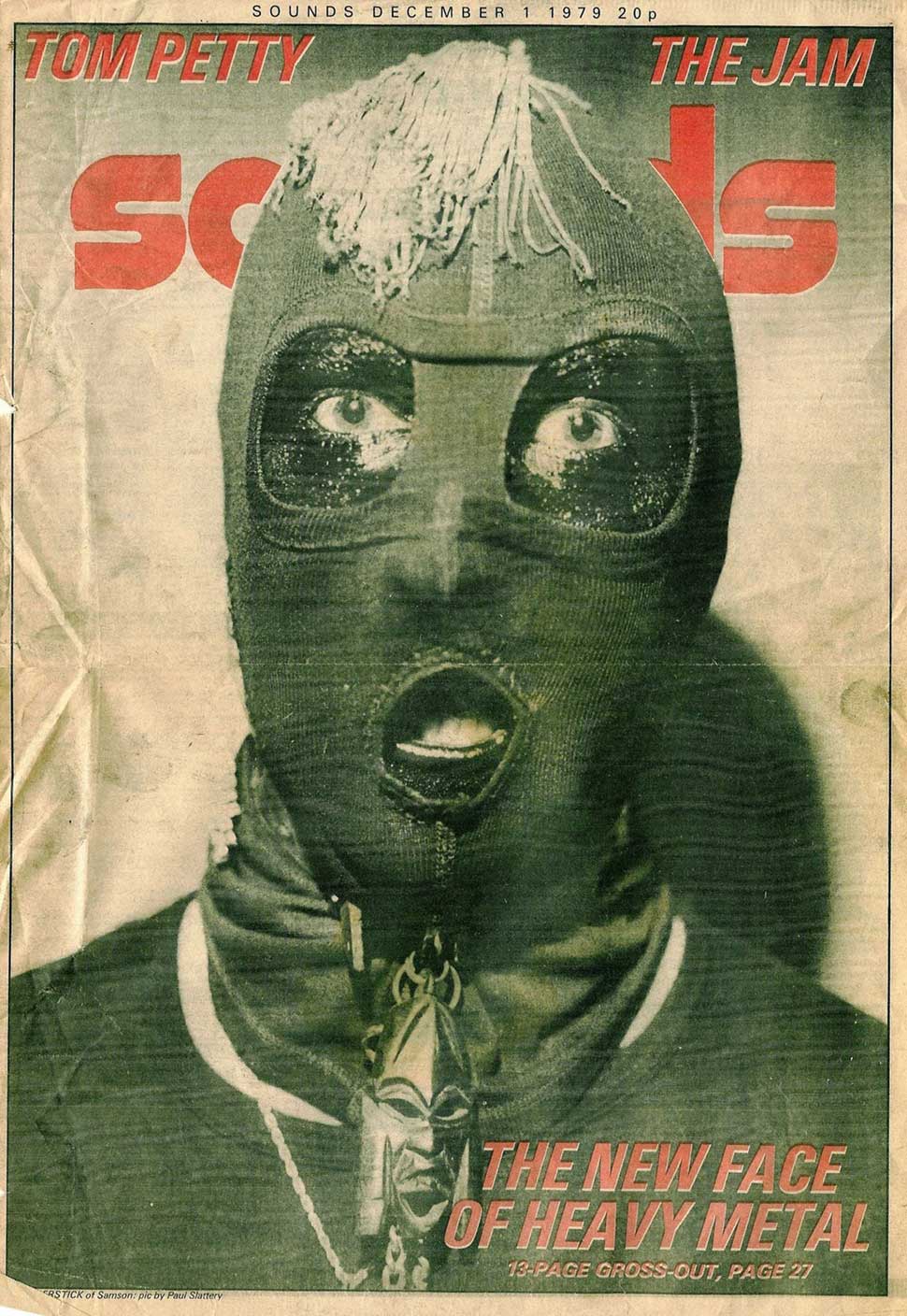
Def Leppard’s Pyromania and Judas Priest’s Screaming For Vengeance had been massive hits in The us, however at house the New Wave Of British Heavy Steel scene used to be all of a sudden deflating. By means of the top of that 12 months it used to be in all places bar the shouting.
Just about 4 a long time on, the legacy of the British bands of the past due 70s and early 80s stays as robust as ever. The extra evident luck tales of that golden generation – Maiden, Leppard, Saxon, Motörhead – discuss for themselves. However the ambition, independence and effort of the length mark it out because the final time British rock and steel actually punched above its weight at the global degree.
Biff Byford: It used to be a vastly essential generation. Hugely essential.
Jess Cox: Other folks glance again and notice the glorious naivety and innocence of it.
Andy Dawson: I don’t suppose any folks realised we had been a part of one thing new. We had been emulating one thing that we beloved that used to be already there. However as a result of we had been younger and blameless and a bit of silly, it introduced one thing new to it.
Speedy Eddie Clarke: Possibly we did alternate issues. We definitely modified issues from the best way they had been within the early seventies.
Ashley Goodall: Heavy rock song have been out of favour for approximately 5 years, and bands like Maiden gave it a kick. It made it cool to be into it once more. It used to be alright to be a heavy rocker once more.
Brian Tatler: I actually suppose it used to be a very powerful time for British song. It helped stay rock going. Simply take a look at how amazingly Iron Maiden have finished during the last 40 years. The whole lot would sound other with out the New Wave Of British Heavy Steel.
Bruce Dickinson: Years in the past, any individual requested: “What’s the name of the game of Maiden’s luck?” I stated:“I want it used to be sophisticated, but it surely’s simply: don’t let other folks down.” Don’t let other folks down. I will reside with that on my gravestone.
Steve Harris: We all the time caught at what we believed in. I’m pleased with that.
Biff Byford: We had been making a song songs for that era about bikes and girls and having a good time. Other folks simply beloved it, actually.
Andy Dawson: Other folks have saved an actual love of that point, and are in search of extra of it. I’m certain they’d love to peer more youthful bands. It will be nice to peer a number of eighteen- or nineteen-year-olds popping out, doing one thing like that, with that more or less power. It will be a recent kick up the arse.
Biff Byford: It used to be very British, but it surely shot around the fucking global. It modified song.
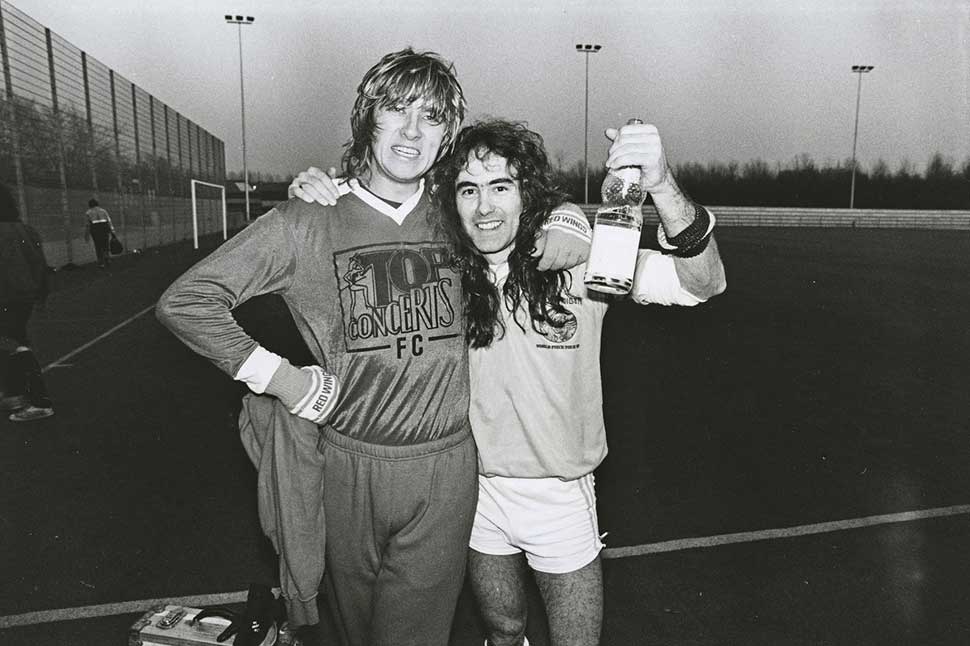
The primary gamers within the start of the NWOBHM
Geoff Barton – Mythical Sounds (and present Vintage Rock) journalist. The primary individual to make use of the word ‘New Wave Of British Heavy Steel’ in print.
Biff Byford – Barnsley-born Saxon singer. Has fronted the band since they shaped as Son Of A Complain within the mid-70s.
Speedy Eddie Clarke – Former Motörhead guitarist and sole surviving member of the vintage line-up. Shaped Fastway after his departure in 1982.
Jess Cox – Unique singer with Whitley Bay NWOBHM pioneers the Tygers Of Pan Tang. Resurrected groundbreaking label Neat Data within the early 90s.
Andy Dawson – Guitarist with Mansfield band Savage, whose music Let It Unfastened used to be coated by way of Metallica on an early demo.
Bruce Dickinson – Leather-based-lunged former Samson singer (sometimes called Bruce Bruce). Later changed Paul Di’Anno in Iron Maiden.
KK Downing – Lengthy-time Judas Priest guitarist. Left the band in 2011 and has since opened a golfing path.
Joe Elliott – Singer and founder member of Def Leppard, the primary of the NWOBHM bands to make it large in The us.
Ashley Goodall – Former EMI Data A&R guy. Signed Iron Maiden and helped put in combination the groundbreaking Steel For Muthas compilation.
Rob Halford – Judas Priest singer, and the person who helped give steel its iconic leather-based uniform.
Steve Harris – Founder and driver at the back of Iron Maiden, essentially the most a success NWOBHM band of all of them.
Neal Kay – DJ, tastemaker, compere and founding father of mythical north London rock mecca the Heavy Steel Soundhouse.
Rick Savage – Def Leppard bassist and founder member.
Brian Tatler – Guitarist and founding father of Diamond Head, whose self-released Lightning To The International locations album used to be some of the NWOBHM’s early successes.
Thunderstick – Often referred to as Barry Graham Purkis, ski-masked former Samson (and, in brief, Iron Maiden) drummer. New album One thing Depraved This Approach Comes is out quickly.
Tommy Vance – Past due Radio 1 DJ and presenter of Radio 1’s The Friday Rock Display. AKA The Voice Of Rock.
Tony Wilson – Author and manufacturer of The Friday Rock Display.

